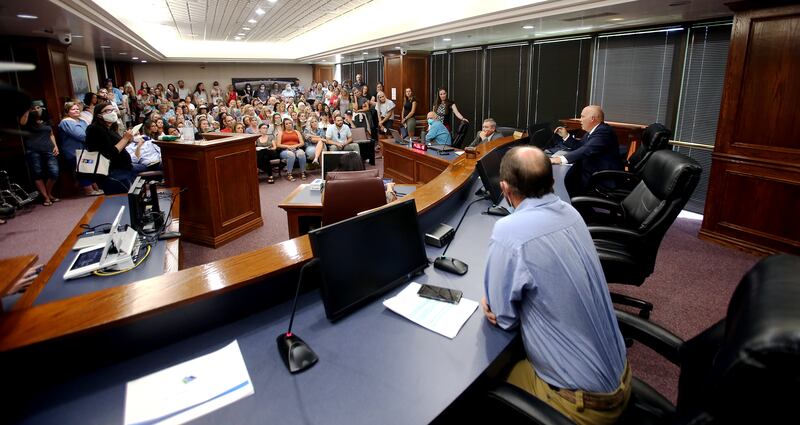I teach political science and have been involved in politics since middle school. This year is clearly one of the most important elections of our lifetime. With that context, I write to offer my thoughts on what I consider the single most important item on my ballot.
Proposition 9 in Utah County would replace the current form of county government — the three full-time commissioner system — with a full-time mayor and part-time county council elected from geographic districts to ensure all parts of the county are represented. Opponents of Proposition 9 have evoked imagery from the Revolution to suggest its purpose is to create a “county king.” Such a claim is neither supported by empirical evidence, nor by the words or intent of the Founding Fathers.
The three-commissioner form of government, which places executive and legislative authority in the hands of three elected officials, was invented by William Penn as a way of providing local governance in Colonial Pennsylvania. It was certainly an improvement over the shires back in England controlled by hereditary nobles and their tax collecting sheriffs.
However, by the time of the founding of the republic, ideas about how the nation ought to be governed had evolved, informed by the Revolution and lessons taken from the excesses of ancient Rome. When debate over adoption of the Constitution hit the newspapers of the day, opponents (antifederalists) and supporters of the Constitution (federalists) didn’t agree on much, but they did agree that legislative and executive authority should never be held in the hands of the same individuals.
As James Madison wrote in Federalist No. 47, “The accumulation of all powers, legislative, executive, and judiciary, in the same hands, whether of one, a few, or many, and whether hereditary, self-appointed, or elective, may justly be pronounced the very definition of tyranny.”
Where tyranny is, we would expect to see fraud, corruption and abuse of power. Sadly, it’s hard to remember a time during my 30 years of active civic participation that the Utah County Commission was not mired in scandal born from one or more of these vices.
Proposition 9 would finally add the separation of powers, a cornerstone of our Constitutional Republic, to Utah County as well as broadening representative government. And I do mean finally.
Last year I was commissioned to conduct a national study of forms of county governance for the Utah County Good Governance Advisory Board. Together with my team of UVU student researchers, we analyzed governance practices across the more than 3,000 counties in the United States. From that pool, we identified 50 counties that were comparable to Utah County across such dimensions as population, growth rate and rural-urban mix.
Among the 50 comparable counties, Utah County was the only county still operating under the three commissioner form of government.
In our discussions with county officials all over the nation, the three commissioner system was often described as a “necessary evil” for rural counties with small populations spread over large geographic areas. For such counties, just as with early colonial Pennsylvania, there was a logic to combining legislative and executive authority in the hands of a few for the sake of efficiency.
All large, rapidly growing counties that we spoke with (none of which were as large or as rapid-growing as Utah County) had abandoned the three commissioner system in favor of something that would embrace separation of powers, and allow for greater representation.
I don’t know what agendas drive opponents of Proposition 9, but I can say with certainty that they are embracing a position that runs counter to best practice, counter to logistical realities, and counter to the founding principles of our nation.
It’s time to listen to the data and the voice of the Founders of our nation. It’s time to adopt Proposition 9.
Luke Peterson is a lecturer in the department of history and political science at Utah Valley University and director of the Policy Lab — a public policy research consultancy.

